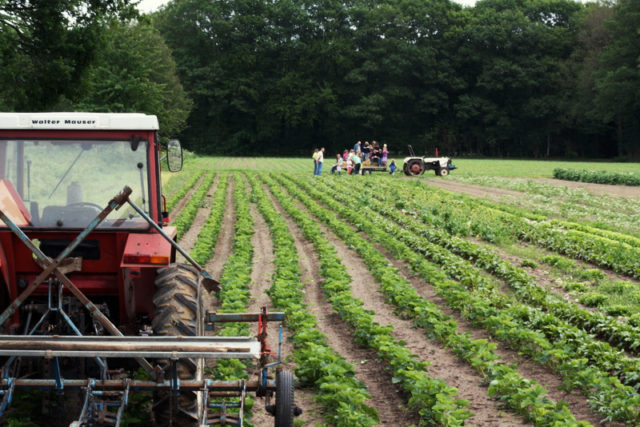
Organic Farms
Organic farms are the latest trend of healthy living. Food and livestock grown and bred on these tracks of land is meant to comply with standards of organic production. This means the practices respect ecological balance, biodiversity and cycle resources. Use of particular pesticides and fertilizers is limited though not completely restricted. Once harvested, these foods are not processed.
Becoming a farmer might be your life-long dream. However, if you ever wanted to have a certified organic farm, you will have to go through some bureaucratic processes and preparations. If you are not discouraged by this, read on to find out how to start an organic farm.
Know what you want
Farming, in general, will require absolute commitment from you. There are specific types of farms – you can’t grow every type of plant or manage every type of cattle. Define goals and make them specific. For example, you can become prolific at growing a particular type of crops.
If you want to become an organic farmer, you are probably concerned about the environment, but you also want to make a profit. Be honest with yourself and determine why you are doing this, because once the process begins, no matter the size of the farm, you are a business owner.
If you want to contribute to the community by offering healthy food that has been grown through natural cycles, why not apply for a job at one of the existing organic farms? This is not meant to discourage you from doing this, you just need to be certain and educated enough before you proceed to take on such an immense challenge that comes with a lot of responsibilities.
Certification and licenses
If you are absolutely determined about starting an organic farm, certification should be the first thing on your list since it takes a lot of time to get certified. Of course, not all organic farmers are certified, but it has its benefits, especially if your yearly sales top $5,000. First, locate a nearby organic certification agency and think carefully about your plan.
This is just one aspect of licensing. It also includes submitting for farm insurance and deciding whether you are the sole proprietor or forming a corporation. All of this includes defining factors such as land zoning, liability and property insurance, fuel storage, farm labor, driver’s licenses, etc.
Planning how to use the land
You have the necessary land to start farming, but the property is, of course, not endless. You have to be really careful about deciding what to grow in the limited area. It might be best to opt for one of these four areas – fruits, vegetables, row crops, or livestock.
The matter of logistics is the next thing to think about. For example, you need to determine if you’ll need a greenhouse, where you’re going to build it and how. And if you want to raise livestock, you’ll need not only a sufficiently large outdoor setting where those creatures will roam freely, but also proper buildings. For instance, sturdy agricultural sheds by Wallandra are designed and engineered to provide all the key requirements essential for maximised creature comfort, productivity and operational efficiency.
There is also the matter of water availability. In order to get a quality irrigation system, you’ll need more money, which brings us to the most important aspect of starting an organic farm.
Financial aspect
Products that come from organic farms can reap many rewards for you down the line. They are, by rule, more expensive than mass produced products and they can even get you noticed by the international community of consumers. However, in order to get to a place where you can build a reputation, you’ll need to invest a lot of money.
The initial investment that will go into the organic farm will cost you a small fortune and it will take some time before you see any returns. This is why, even if you have the money, you have to be absolutely certain this is something you want to do.
Most farmers don’t only commit to a “life in the field”, but they also commit to loans from the banks. Various banks offer credit systems which are specifically designed for farmers, but if you can find the money yourself, specifically speaking – from private sources, avoid taking these loans.
If you want to become an organic farmer, you have to sacrifice a lot. It takes time, perseverance and nerves of steel to do the work but it pays off manifold. In a way, starting it up might be the greatest test that will definitely prove whether you should do it – it’s a long and arduous process before you actually get to farming.
